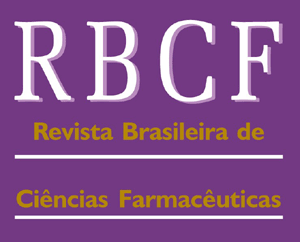Gentamicin is a low cost antimicrobian commonly used in the treatment of neonatal sepsis. Nevertheless, there is a potential risk of oto and nephrotoxicity. The objectives of the study were to characterize the hospitalized neonate in use of gentamicin and to evaluate the follow-up of the dosing protocol adopted. It is a cross sectional study of a total of 63 neonates who received assistence at a public maternity in August, October and December, 1999. It is a Brazilian public institution which plays a role of reference in the high risk pregnancy and delivery. Most patients were premature (85.7%) and low birth weight (90.5%). Only two (3.2%) sepse cases were confirmed by hemoculture. The protocol adopted recommends doses of 2.5mg/kg with a 24 hour dosing interval for neonates weighing less than 1200 g and a 12 hour dosing interval for those with a superior weight. Almost all doctors (96.7%) followed the protocol considering the dose and dosing interval. However, most patients (72.6%) with negative hemoculture were treated for more than the recommended time.
Gentamicin; Dosing regimen; Neonatal sepsis; Treatment protocol






